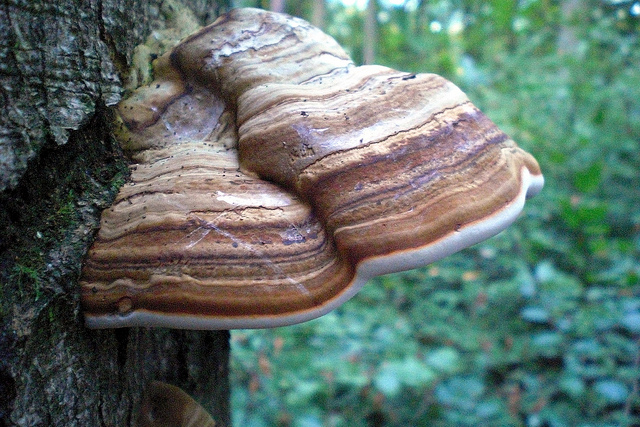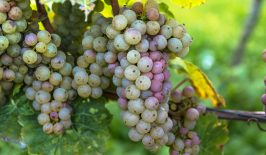There are already several companies exploring the ways in which mushrooms can be transformed into leather-like textiles. One is Amadou Leather, which works with the incredible fungi “fomes fomentarius”, also known as tinder fungus, hoof fungus, tinder polypore or ice man fungus. This inedible fungus is the main ingredient of “amadou” – a spongy material derived from the fungus, that was literally used as tinder for lighting fires until the 20th century and was even processed into textiles back in the Middle Ages.
Amadou Leather produces vegan leather for the apparel, furniture and automotive industries – using key principles of the circular economy. The mushrooms are grown in recycled sawdust and since they’re an organic material that means they’re compostable and leave no waste – something which is often a big issue surrounding many vegan leather alternatives. Commercial vegan leather often consists mostly of polyurethanes (PU), a plastic that is neither recyclable nor degradable.
The Advantages of Mushroom Leather
Leather made from mushrooms has a whole host of advantages when compared to the conventional plastic-based vegan alternatives. It can absorb moisture from the skin, while at the same time being both breathable and water-repellent – just like animal leather.
The main plus point when compared to animal leather is of course that no animals are harmed in its production. Animal leather is also often processed using chrome and a variety of other chemicals which are harmful both to the environment and human health. These processes are also often outsourced to countries in the Global South – many in India and Bangladesh – where working conditions are dangerous and unregulated, child labour is not uncommon and workers are rarely provided with protective clothing.
Amadou Leather isn’t the only company working with the mushroom-based leather alternatives. MycoWorks, based in the US, are working with mycelium – the fine, thread-like vegetative part of a fungus – using agricultural waste products such as corncobs and hemp fibres to grow it. It’s a process that consumes considerably fewer resources than what’s generally needed to raise cattle. While a cow is reared for two years and requires food, water and land, the mushroom needs two weeks to reach the same size. The fungus can also grow in different patterns and colours, meaning there’s no need to treat it with chemicals later on in the process.
In this video, MycoWorks founder Phil Ross explains how his company works with the mycelium.
© nat-2
And that’s not all – mushrooms are far from being the only food that can be turned into a vegetable leather alternative. Other companies are already working with pineapple, apple waste or even grapes, and who know’s what might be next?
This is a translation by Marisa Pettit of an article which first appeared on RESET’s German-language site.






